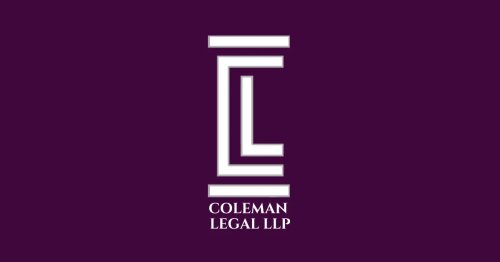Best Faith-Based Law Lawyers in Ireland
Share your needs with us, get contacted by law firms.
Free. Takes 2 min.
Or refine your search by selecting a city:
List of the best lawyers in Ireland
About Faith-Based Law in Ireland
Faith-Based Law in Ireland encompasses a range of legal issues and considerations for individuals and communities practicing diverse religious faiths. While Ireland is a secular state, it acknowledges the rights of individuals and communities to practice their religion freely. Faith-based law intersects with family law, employment law, education, and discrimination law, where religious beliefs and practices may influence legal needs and disputes. Legal practitioners in this field have expertise in navigating the complexities where secular law meets religious doctrines, ensuring that individuals and communities can exercise their rights without infringing upon the legal rights of others.
Why You May Need a Lawyer
Individuals and communities may require legal assistance in Faith-Based Law for several reasons:
- Religious Rights and Freedoms: Issues may arise concerning the exercise of religious rights in public and private sectors, including education and workplace practices.
- Family Matters: Family law cases, such as marriage, divorce, and child custody, may be influenced by religious law, requiring careful legal navigation.
- Discrimination: Individuals may face discrimination based on their religious beliefs, necessitating legal action to protect their rights.
- Property and Organizational Governance: Religious organizations often require legal guidance on property ownership and management, governance, and charitable status.
- Contracts and Obligations: Legal assistance may be needed to draft or interpret contracts that involve religious elements or principles.
Local Laws Overview
Several key aspects of local laws in Ireland are particularly relevant to Faith-Based Law:
- Constitutional Guarantees: The Irish Constitution guarantees the freedom of religion, and no particular religion is given preference over others.
- Equality Legislation: The Equal Status Acts and Employment Equality Acts protect against discrimination, including on religious grounds.
- Education: Many schools in Ireland are denominational, with certain legal protections for their religious ethos and admission policies.
- Family Law: While Irish family law is secular, religious beliefs can influence personal choices; certain religious ceremonies may be legally recognized.
- Charitable Organizations: Religious organizations that operate as charities must comply with regulations governing charities and trusts in Ireland.
Frequently Asked Questions
1. What is the role of Faith-Based Law in secular Ireland?
Faith-Based Law helps individuals and communities navigate legal issues where their religious practices may intersect with secular law, ensuring their religious rights are respected while complying with national laws.
2. Can religious ceremonies be legally recognized in Ireland?
Yes, certain religious ceremonies, such as marriages, can be legally recognized in Ireland if they meet the criteria set by civil authorities.
3. How does the Irish Constitution protect religious freedom?
The Irish Constitution protects religious freedom by ensuring that individuals can practice their religion freely and without discrimination, though subject to public order and morality constraints.
4. Are religious schools allowed to prioritize students of their faith?
Religious schools can prioritize admission for students of their faith, but this must be done in compliance with equality legislation and school admission policies.
5. Can an employer refuse to accommodate my religious practices?
Employers are required to make reasonable accommodations for employees' religious practices, unless it causes undue hardship to the business.
6. Can I establish a religious charity in Ireland?
Yes, by registering with the Charities Regulator, religious organizations can operate as charities, subject to compliance with charity law standards and regulations.
7. What should I do if I encounter religious discrimination?
If you encounter discrimination based on religion, you can seek legal advice to explore the possibility of filing a complaint under the relevant equality legislation.
8. Are there legal requirements for religious symbols in public spaces?
While individuals can freely display religious symbols, there may be legal limitations or employer policies regarding religious symbols in certain public spaces or workplaces.
9. How does Faith-Based Law affect family law disputes?
While Irish family law is secular, individuals may consider religious principles in personal decisions about marriage, divorce, and child custody, though courts will prioritize the best interests of the child when making decisions.
10. Can businesses refuse service based on religious beliefs?
Businesses cannot refuse service based on religious beliefs unless there are valid legal exemptions, as refusal could constitute discrimination under equality laws.
Additional Resources
For those seeking further information or assistance on Faith-Based Law, the following resources can be valuable:
- The Irish Human Rights and Equality Commission (IHREC): Provides guidance on rights and equality, including religious discrimination.
- The Charities Regulator: Offers information on setting up and managing charitable organizations, including faith-based charities.
- Council of Religious of Ireland (CORI): An organization that represents religious congregations and provides guidance for faith-based communities.
- Department of Education: Provides information on policies related to religious schools and their governance.
- The Law Society of Ireland: Offers directories for finding legal practitioners with expertise in Faith-Based Law.
Next Steps
If you need legal assistance in Faith-Based Law, consider the following steps:
- Identify Your Needs: Clearly outline the legal issue or question you have, along with relevant background information.
- Consult with a Specialist: Seek legal advice from a lawyer specializing in Faith-Based Law who can provide you with guidance tailored to your specific situation.
- Research Available Resources: Utilize available governmental and not-for-profit resources for initial guidance and support.
- Seek Alternative Dispute Resolution: Consider mediation or alternative dispute resolution techniques, especially in disputes involving religious communities.
- Ensure Compliance: Ensure that any actions or practices comply with both secular and religious legal systems to avoid potential conflicts.
Lawzana helps you find the best lawyers and law firms in Ireland through a curated and pre-screened list of qualified legal professionals. Our platform offers rankings and detailed profiles of attorneys and law firms, allowing you to compare based on practice areas, including Faith-Based Law, experience, and client feedback.
Each profile includes a description of the firm's areas of practice, client reviews, team members and partners, year of establishment, spoken languages, office locations, contact information, social media presence, and any published articles or resources. Most firms on our platform speak English and are experienced in both local and international legal matters.
Get a quote from top-rated law firms in Ireland — quickly, securely, and without unnecessary hassle.
Disclaimer:
The information provided on this page is for general informational purposes only and does not constitute legal advice. While we strive to ensure the accuracy and relevance of the content, legal information may change over time, and interpretations of the law can vary. You should always consult with a qualified legal professional for advice specific to your situation.
We disclaim all liability for actions taken or not taken based on the content of this page. If you believe any information is incorrect or outdated, please contact us, and we will review and update it where appropriate.
Browse faith-based law law firms by city in Ireland
Refine your search by selecting a city.














